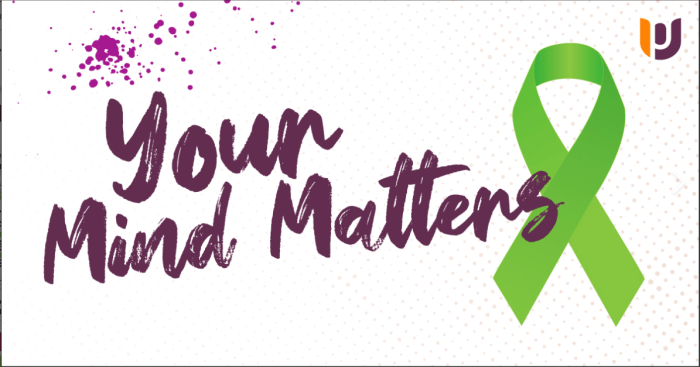Kicking off with Mental Health Awareness, this opening paragraph is designed to captivate and engage the readers, setting the tone american high school hip style that unfolds with each word.
In a world where mental health is often misunderstood and stigmatized, raising awareness is crucial to promoting well-being and empathy. Let’s dive into the impact, strategies, and technology behind Mental Health Awareness campaigns.
Introduction to Mental Health Awareness
Mental health awareness is the understanding, recognition, and acceptance of the importance of mental well-being. It involves educating individuals about mental health issues, breaking down stigma, and promoting a supportive environment for those struggling with mental health conditions.
Raising awareness about mental health is crucial in society as it helps to destigmatize mental illnesses and encourages individuals to seek help without fear of judgment. By increasing awareness, we can promote empathy, understanding, and acceptance, ultimately leading to a healthier and more inclusive community.
Mental health awareness plays a vital role in reducing stigma surrounding mental health conditions. It encourages open conversations, normalizes seeking help, and fosters a supportive environment for those in need. By educating the public about mental health, we can create a more compassionate and empathetic society that prioritizes mental well-being.
The Impact of Mental Health Awareness
- Reduces stigma associated with mental health conditions
- Promotes understanding and empathy towards individuals with mental illnesses
- Encourages seeking help and support for mental health concerns
- Creates a more inclusive and supportive community for individuals struggling with mental health
The Impact of Mental Health Awareness Campaigns
Mental health awareness campaigns play a crucial role in educating the public about various mental health issues, reducing stigma, and encouraging individuals to seek help when needed. These campaigns aim to increase awareness, provide resources, and promote understanding of mental health conditions.
Examples of Successful Mental Health Awareness Campaigns
- The “Bell Let’s Talk” campaign in Canada has been highly successful in raising awareness about mental health and reducing stigma. The campaign encourages open conversations about mental health and has contributed to significant increases in calls to helplines and visits to mental health websites.
- The “It’s Okay to Not Be Okay” campaign by the National Alliance on Mental Illness (NAMI) in the United States has made a significant impact by promoting acceptance and understanding of mental health struggles. The campaign features real stories from individuals living with mental illness and emphasizes the importance of seeking help and support.
Contribution to Promoting Understanding and Empathy
Mental health awareness campaigns help to create a more supportive and empathetic community by shedding light on the challenges faced by individuals with mental health conditions. By sharing personal stories, providing information, and offering resources, these campaigns foster empathy and encourage individuals to support each other in times of need.
Strategies for Improving Mental Health Awareness

Improving mental health awareness is crucial for promoting well-being and reducing stigma. By implementing various strategies, organizations and individuals can make a significant impact in raising awareness about mental health issues.
Open Conversations
Creating a safe space for open conversations about mental health is essential in breaking down barriers and reducing stigma. Encouraging individuals to share their experiences and emotions can help normalize discussions around mental health.
Education, Mental Health Awareness
- Organizing workshops, seminars, and educational events to provide information about mental health disorders, symptoms, and available resources.
- Integrating mental health education into school curriculums to raise awareness and promote early intervention.
- Training healthcare professionals and community members to recognize signs of mental health issues and provide support.
Destigmatization
Changing the narrative around mental health by portraying it accurately and sensitively in media, entertainment, and public discourse.
Engaging Diverse Audiences
Reaching diverse populations with tailored messaging and culturally sensitive approaches is crucial in spreading mental health awareness effectively. Using multiple communication channels and platforms can help engage a wide range of audiences.
Technology and Mental Health Awareness

In today’s digital age, technology plays a significant role in raising awareness about mental health issues. Through various platforms and tools, individuals can access information, resources, and support to better understand and address their mental well-being.
Role of Social Media
Social media platforms like Instagram, Twitter, and Facebook have become powerful tools for spreading awareness about mental health. Users can share personal stories, resources, and educational content to reach a wide audience and reduce stigma surrounding mental health challenges.
Mobile Apps for Mental Health
Mobile apps dedicated to mental health, such as Calm, Headspace, and Talkspace, provide users with tools for meditation, therapy, and self-care. These apps make mental health resources more accessible and convenient for individuals seeking support.
Online Platforms for Support
Online platforms like BetterHelp and 7 Cups offer virtual counseling and support services for those struggling with mental health issues. Through these platforms, individuals can connect with licensed professionals and peers in a safe and confidential environment.
Benefits and Challenges of Using Technology
– Benefits: Technology allows for greater accessibility to mental health resources, reduces barriers to seeking help, and fosters a sense of community and support.
– Challenges: Privacy concerns, misinformation spreading, and the potential for technology to replace in-person support are some challenges to consider when leveraging technology for mental health awareness.

